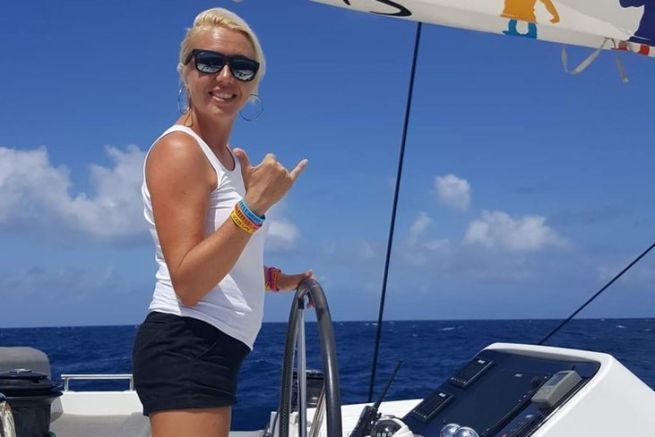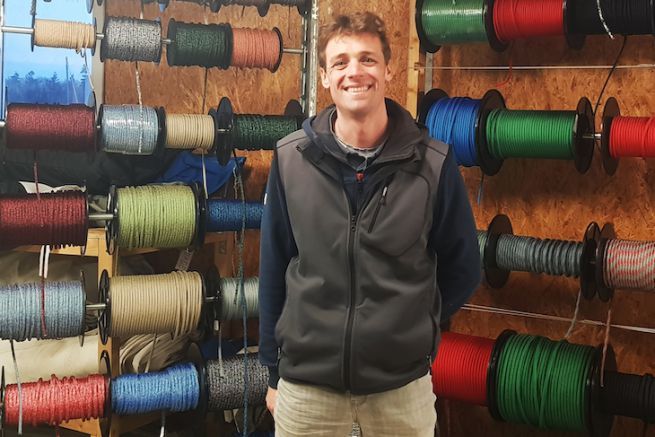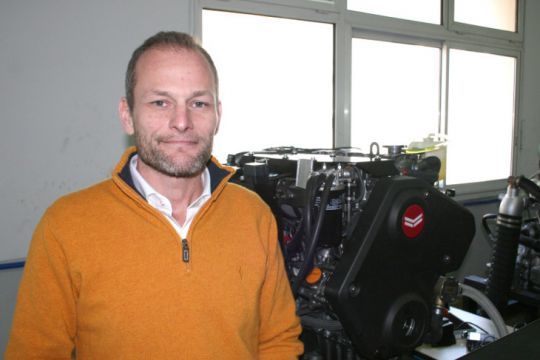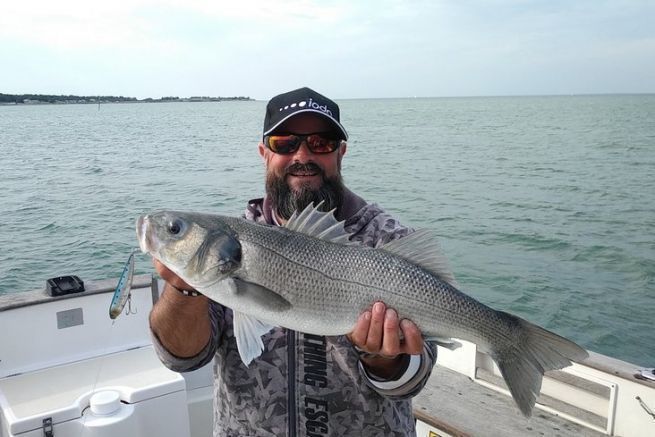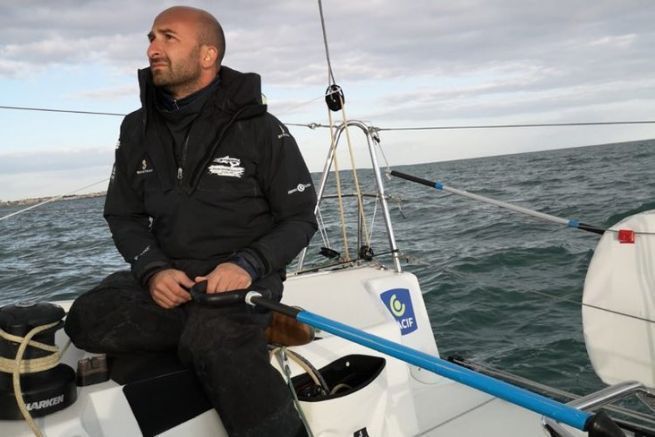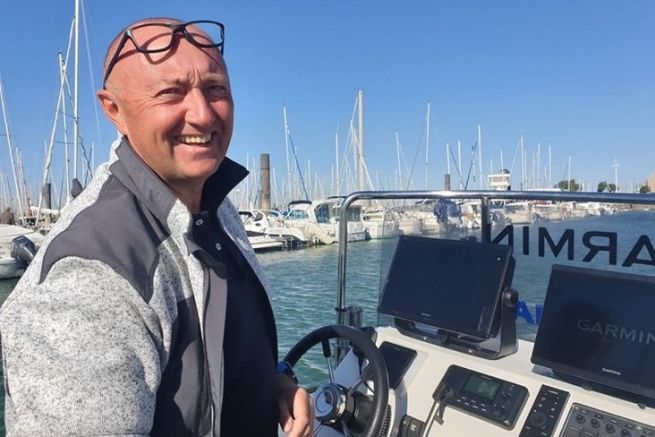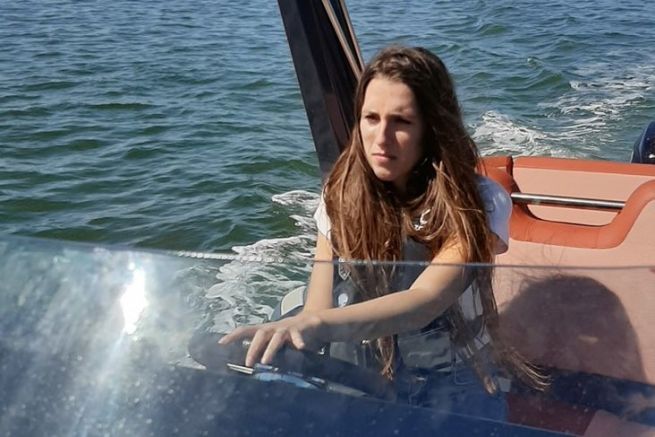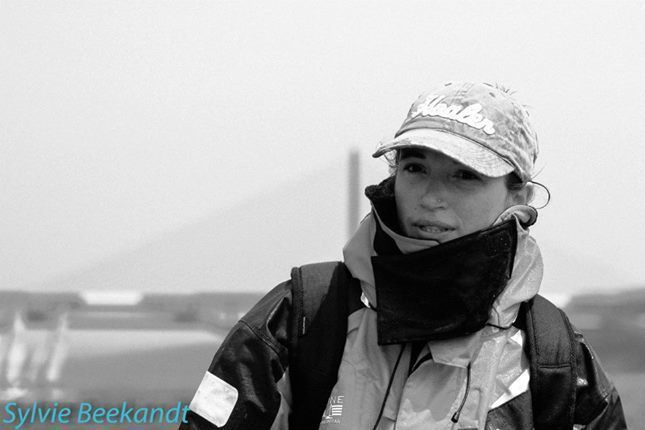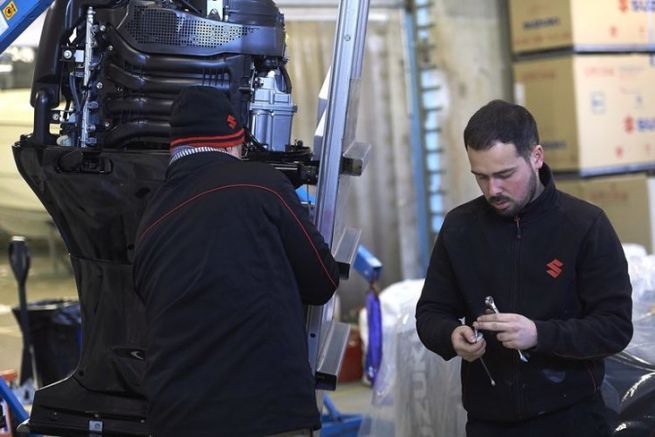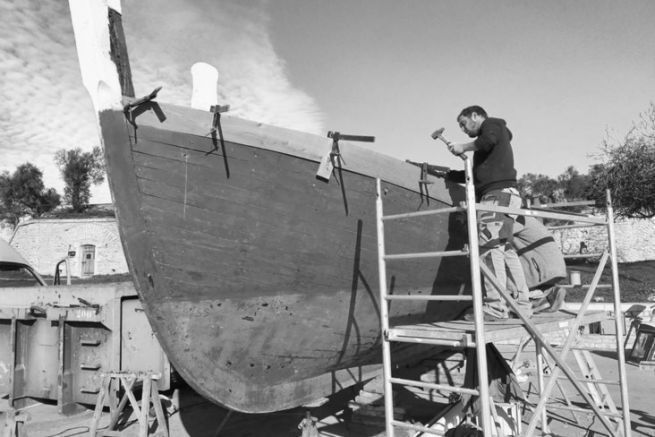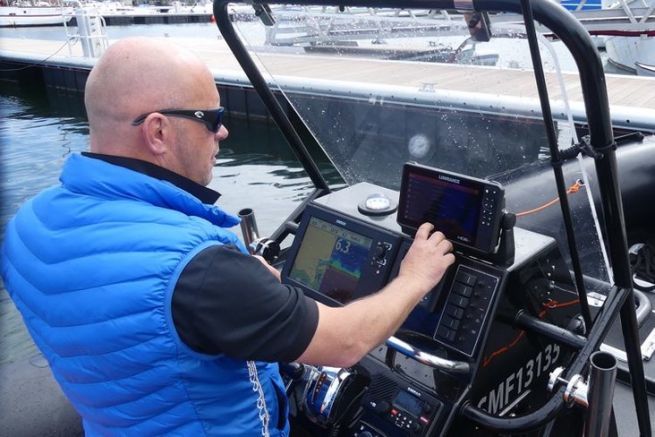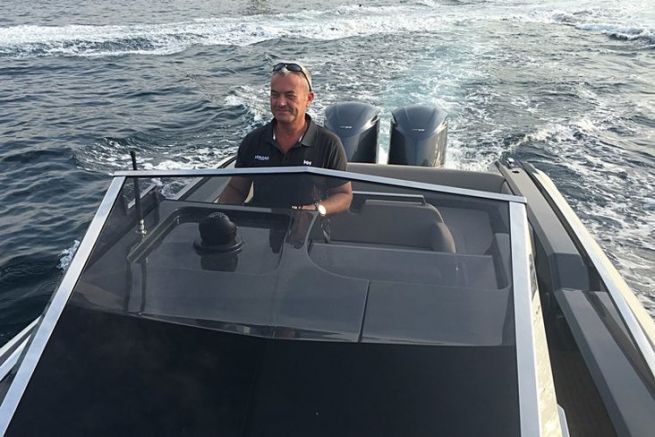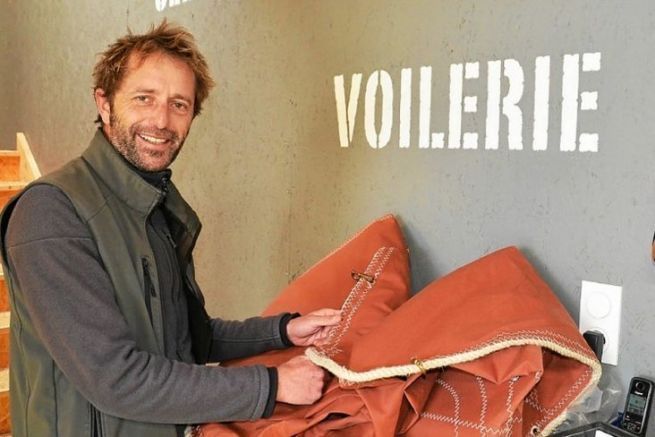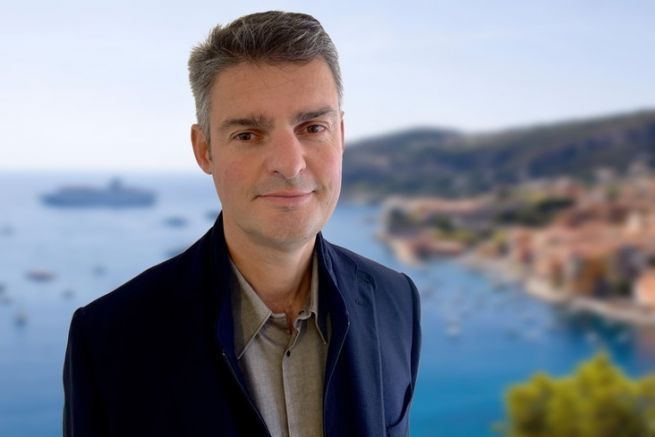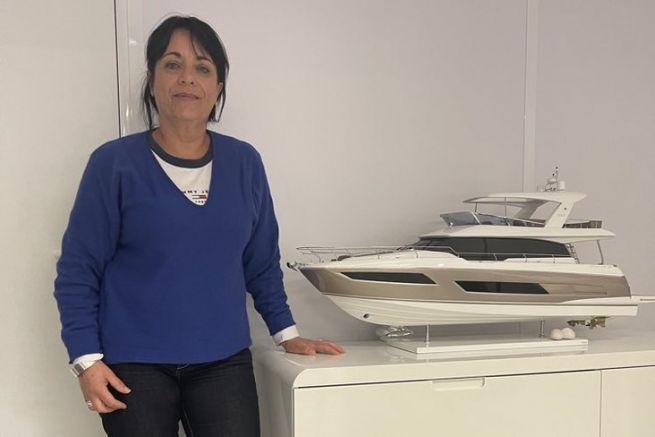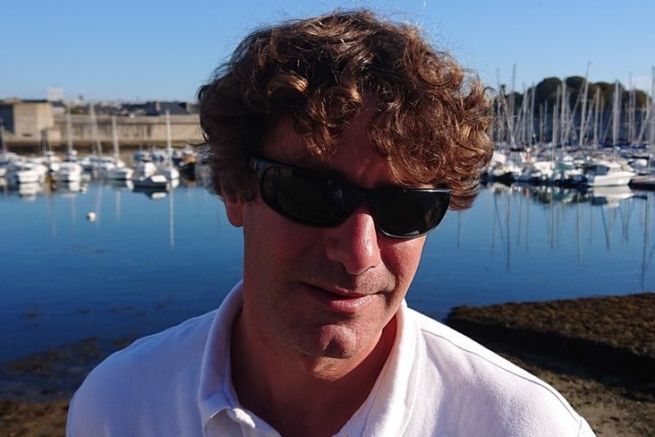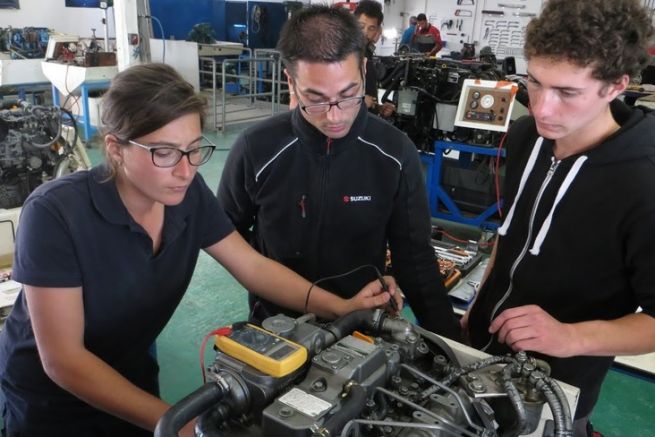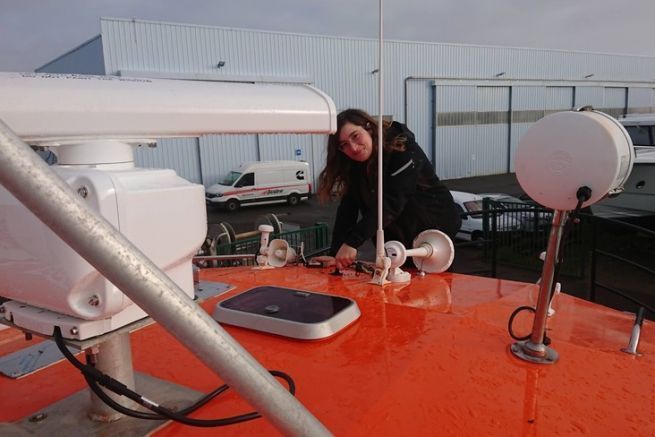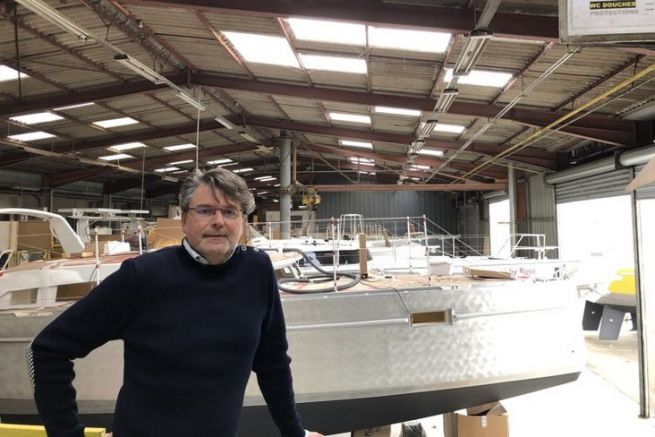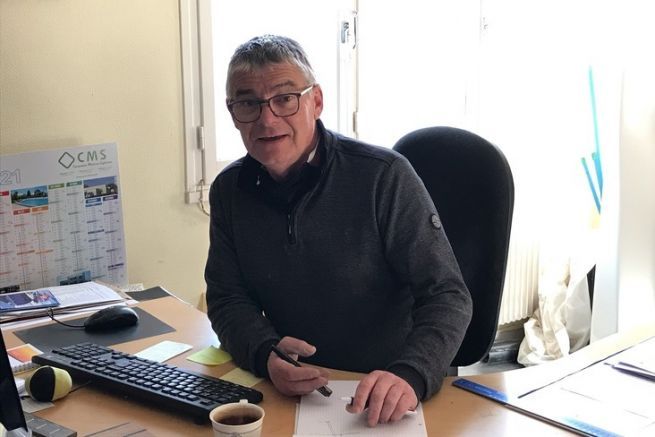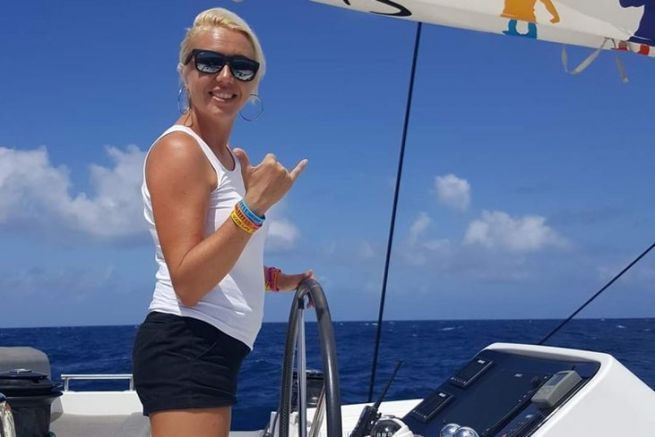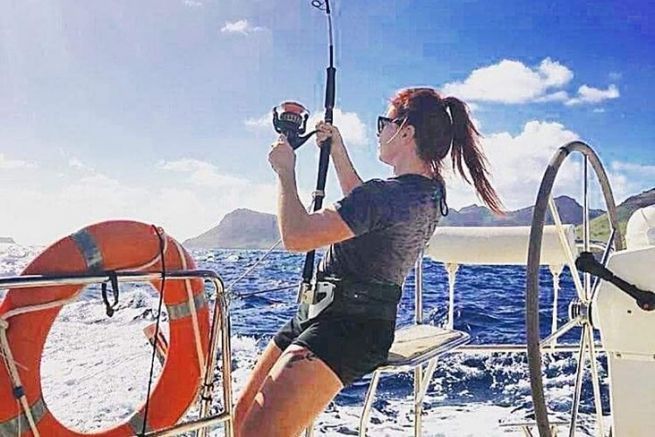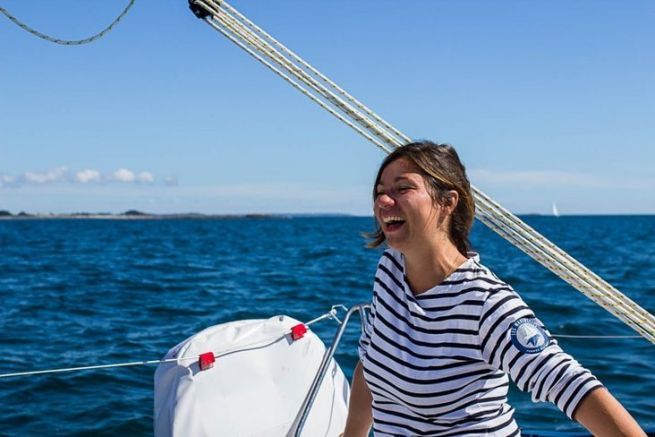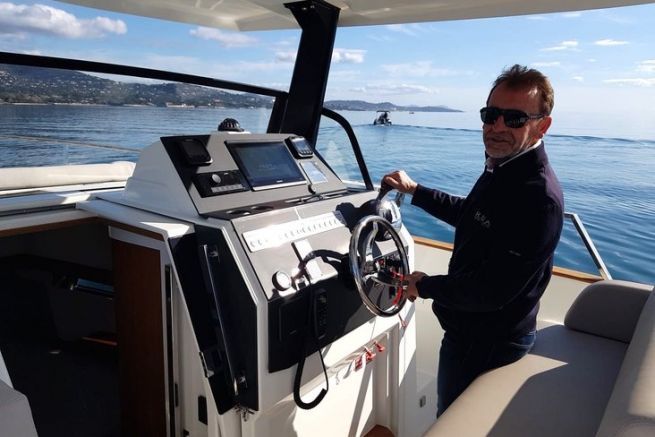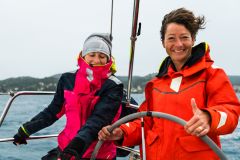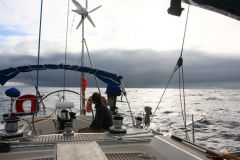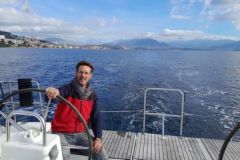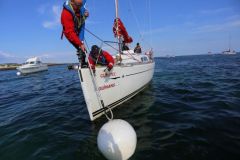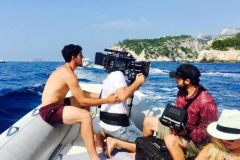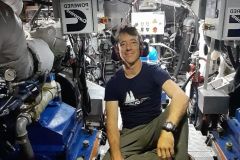What training, what diploma, what skills are needed for the job?
The desire to sail, get certified and improve
Production manager for art houses, including Chanel, Clarisse left the capital in 2016 with a very specific idea, without knowing how to organize herself, but with this desire for freedom and access to the profession of sailor.
" In 2018, I'm going to the West Indies with the aim of finding a job as a sailor or hostess. I took the opportunity to go on a catamaran cruise with some friends and also to convince myself that my project was the right one. As soon as I came back from this cruise, I found a job in Les Sables-d'Olonne: sailor-hostess on the schooner Diva, a classic schooner with a beautiful history, built in La Rochelle using traditional methods. As a member of the crew, I ensured the safety and comfort of the passengers. In parallel with this activity, my husband, who holds a 200 captain's certificate, worked in the winter in the French West Indies.
During my time in the West Indies, when I was in Saint-Barthélemy working for Saint-Barth Sailor (daily sailboat rental with crew), I had the chance to fill in for my boss who was away racing in the Transat AG2R and it was thanks to this first experience in autonomy that I really got my foot in the door. "
The problem that Clarisse encountered was that to skipper or command nice sized sailboats without experience or a diploma was impossible, so that's when the idea of becoming a skipper came up.
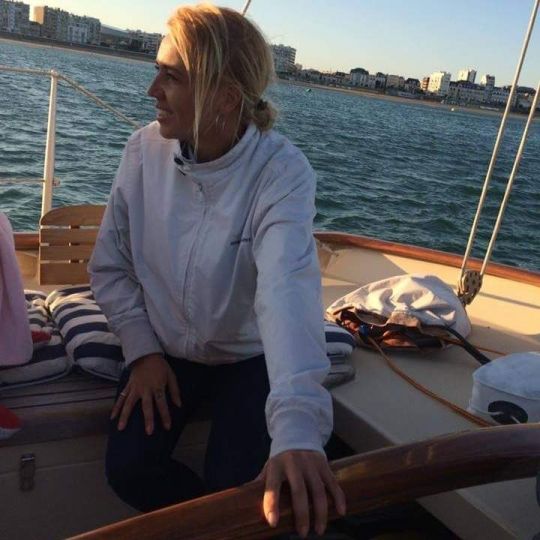
" I kept this project secret since I left Paris, not having the knowledge or access to training networks. Thanks to my experience in the West Indies, I was able to organize myself and find training centers. That's when I arrived in Les Sables-d'Olonne to take the Basic Safety Training Certificate (CFBS) for everything concerning safety on board, a compulsory diploma to embark, then a Deckhand Certificate to continue towards a Captain 200 - Sailing certificate ", degree obtained in February 2021, at the age of 38 Clarisse Potel, only 4 years after discovering sailing.
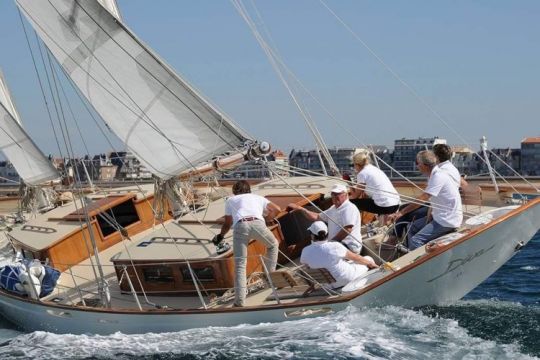
" The first skill is to have sailed a lot, which I did during my "Schooner Diva" period and for Saint-Barth Sailor as a hostess-mariner, in addition I am part of a J80 crew in Les Sables-d'Olonne to be comfortable on the water in all conditions, and especially the deckhand certificate to be able to "touch the fenders". This was the beginning of the journey to become a sailor and thus a skipper. Without a deckhand's certificate, it is impossible to find a place on board. You gain experience and learn by doing "Clarisse insists.
" And as a significant period of sailing as a seaman is necessary to validate the seaman's diploma, it is possible to anticipate the training for the passage to Captain 200. "
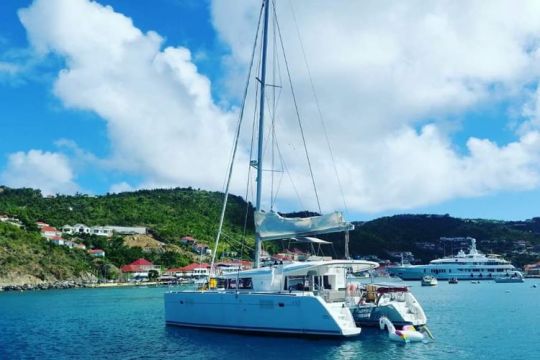
What is the daily life and responsibilities of this profession?
Finding boarding and assisting boaters in long distance trips.
Now Clarisse is looking for a place as second captain on a professional sailing boat while she gets comfortable and masters the navigation to be able to take the captaincy of a pleasure or commercial vessel under certain conditions and other certifications.
Clarisse is already in contact with the future owner of a 70-foot sailboat who wants to go around the world.
With several long sailings under his belt, for now his plan is to travel without owning the boat. " It's a lot of work to own a boat "Clarisse confirms.
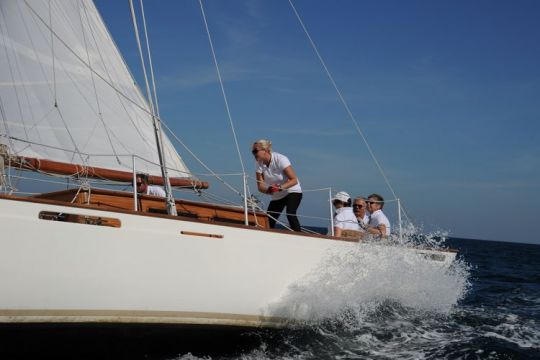
What are the possible developments in this profession?
Sail all the oceans and meet new people
" I would like to stay in the field of professional yachting and sail on different seas to go around the world while continuing on a rhythm of 6 months in Les Sables-d'Olonne, 6 months in the tropics and sailing in the Pacific Ocean.
On the water, meetings are easy to make, the people of the sea are a small family, it is not rare that these meetings become opportunities for new lives, the opposite of the hyper hierarchical environment of large companies, the people of the sea often have an open mind which makes things simple "Clarisse concludes.
